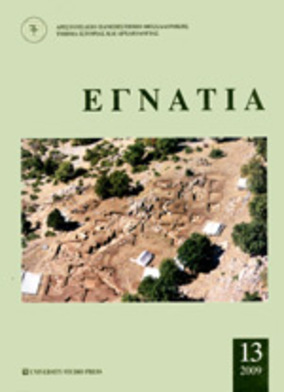Αγλαότιμον γένος : οι Έλληνες της Νεάπολης και η ιδιοποίηση βυζαντινών δυναστικών τίτλων (16ος-17ος αι.)
Part of : Εγνατία ; No.14, 2010, pages 43-54
Issue:
Pages:
43-54
Parallel Title:
Glorious rank : the Greeks of Naples and the appropriation of Byzantine dynastic titles (XVI-XVII cent.)
Section Title:
Ιστορία
Author:
Abstract:
The author examines the initiatives on the part of some strong Greek families in Naples of the sixteenth and seventeenth centuries (Melissinós, Diamantis, Comnenos, Médicos, Basilicós, Sevastós) to prove their origin from great Byzantine dynastic and princely houses. The endeavour was based on the use of fabricated documentation (imperial, notary, public, etc.), and the testimony of many, often prestigious, witnesses. The quest for patents of nobility was for some Greek exiles living in the semi-feudal Southern Italy, at that time under Spanish rule, a conditio sine qua non for their reception in their new social environment, and a convincing argument for various economic benefits from the Spanish authorities, as well. Eventually, those orchestrated activities yielded the expected fruits through marriages of convenience to well-established Italian families, such as the Pisciotta, Montefuscolo, Moccia, and Vincenti. However, the persistence of the Greek families in Southern Italy to promote their supposed ancestral privileges, allegedly owned by them in the Greek Levant, not only boosted their social status; it functioned also in the field of ideology, stemming for nearly a century —by highlighting their «noble» rank tradition— the notwithstanding inescapable procedure of their final «italianization». So, one might interpret the fact that, despite their achieved social integration, they continued proudly, at least through three generations, to define themselves as Greeks.
Subject:
Subject (LC):
Notes:
Αφιερωμένο στον Hans Eideneier, για τα εβδομήντα τόσα χρόνια του.




